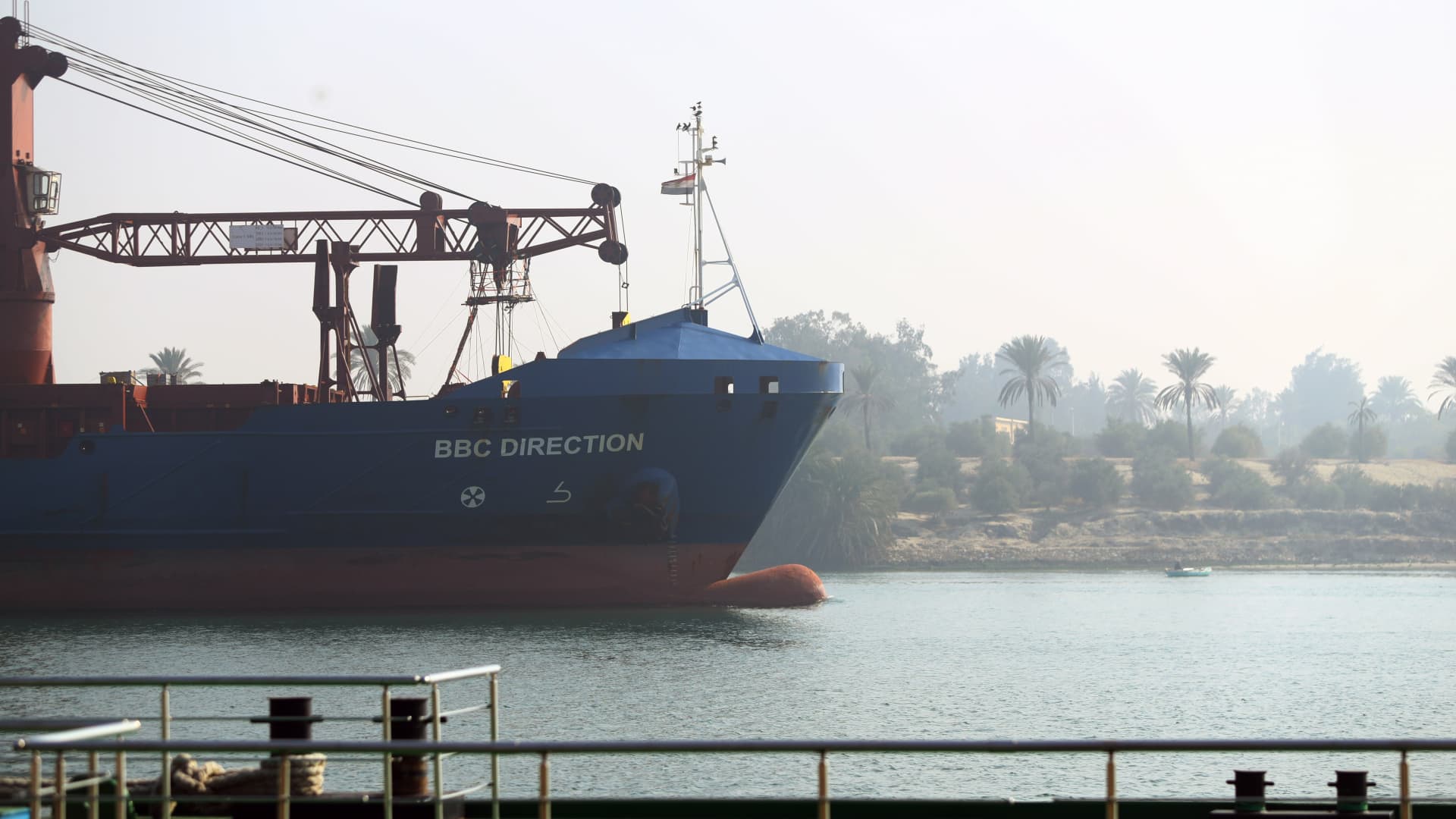A container ship sails through the new section of the Suez Canal in the Egyptian port city of Ismailia, 135 kms northeast of the capital Cairo on October 10, 2019.
Khaled Desouki | AFP | Getty Images
Attacks by Iran-backed Houthi militants on ships in the Red Sea have already rocked global trade. And there could be more disruptions and price increases to come for shipments of goods and fuel.
Several major shipping lines and oil transporters have suspended their services through the Red Sea as more than a dozen vessels have come under attack since the start of the Israel-Hamas war in early October.
Help appears to be on the way. U.S. Defense Secretary Lloyd Austin, who is visiting Bahrain, said American forces along with the United Kingdom, Bahrain, Canada, France, Italy, Netherlands, Norway, Seychelles and Spain would create a new force to protect ships in the region.
MSC, Maersk, Hapag Lloyd, CMA CGM, Yang Ming Marine Transport and Evergreen have all said they will be diverting all scheduled journeys immediately to secure the safety of their seafarers and vessels. Collectively, these ocean carriers represent around 60% of global trade.
Evergreen also said it would temporarily stop accepting any Israel-bound cargo, suspending its shipping service to Israel. Orient Overseas Container Line (OOCL), which is a part of Chinese-owned COSCO Shipping Group, has also stopped accepting Israeli cargo, citing operational issues.
“About 30% of Israeli imports come through the Red Sea on container vessels that are booked two to three months in advance for consumer or other products, meaning that if the voyage will now be extended, products with a shelf life of two to three months will not be worthwhile importing from the Far East,” said Yoni Essakov, who sits on the executive committee of the Israeli Chamber of Shipping.
“Importers will need to increase stock due to the uncertainty and pay much more and others will lose out on their markets as time to market is not competitive,”…
Read the full article here

Leave a Reply